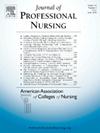Implementing peer support in graduate nursing education: A quality improvement initiative
IF 2.9
3区 医学
Q1 NURSING
引用次数: 0
Abstract
Background
Graduate nursing students encounter a variety of academic and social sources of stress and anxiety. Post COVID pandemic review of mental health reveals worsening statistics for graduate students. Doctor of Nursing Practice (DNP) attrition is increasing, with student support issues and program stressors being two major predictors of attrition. At a large university, academic progression through the first two specialty courses revealed a 5–28 % failure/withdrawal rate. A Peer Support Pilot Program was implemented as a resource for students.
Purpose
The purpose of this project was to implement and evaluate a Peer Support Pilot Program for students in the Adult Gerontology-Acute Care Nurse Practitioner/Clinical Nurse Specialist (AG-ACNP/CNS) track DNP program.
Methods
The program was designed with literature, faculty, and student engagement. The program was implemented over one semester. An evaluation was completed looking at utilization, academic progression, and student perception. Attendance of in-person events and academic progression were recorded by course faculty. An anonymous Qualtrics Survey was sent to participants assess utilization and perceptions.
Results
Students utilized their peer coaches for support throughout the semester (90 %), and half perceived it as contributing to their academic success. There was no measurable change in academic progression for AG-ACNP/CNS students compared to the year prior.
Conclusions
A Peer Support Program is a well-known evidence-based intervention to support undergraduate nursing students. There are few studies that look at graduate nursing student's outcomes and utilization with peer support. Although this project revealed graduate nursing students perceived the program contributed to their academic success, there was no impact on academic progression. Further research is needed to assess the impact of peer support on graduate nursing students.
在研究生护理教育中实施同伴支持:一项质量改进倡议
护理研究生会遇到各种各样的学术和社会压力和焦虑来源。COVID大流行后对心理健康的审查显示,研究生的统计数据正在恶化。护理实践博士(DNP)的流失正在增加,学生支持问题和项目压力因素是流失的两个主要预测因素。在一所规模较大的大学,通过前两门专业课程的学业进展显示出5 - 28%的不及格或退学率。实施了同伴支持试点计划,作为学生的资源。目的:本项目旨在为成人老年学-急症护理执业护士/临床护理专家(AG-ACNP/CNS)跟踪DNP项目的学生实施和评估同伴支持试点项目。方法采用文献、教师和学生参与的设计方法。该计划实施了一个学期。完成了一项评估,考察利用率、学业进展和学生感知。出席现场活动和学业进展由课程教师记录。一份匿名的质量调查发送给参与者评估利用率和看法。结果90%的学生在整个学期都利用同伴教练的支持,一半的学生认为这有助于他们的学业成功。与前一年相比,AG-ACNP/CNS学生的学业进展没有可测量的变化。结论同伴支持计划是一种著名的以证据为基础的护理本科生支持干预措施。很少有研究关注护理研究生的结果和同伴支持的利用。虽然这个项目显示护理研究生认为该计划有助于他们的学业成功,但对学业进步没有影响。需要进一步的研究来评估同伴支持对护理研究生的影响。
本文章由计算机程序翻译,如有差异,请以英文原文为准。
求助全文
约1分钟内获得全文
求助全文
来源期刊
CiteScore
4.80
自引率
8.00%
发文量
153
审稿时长
52 days
期刊介绍:
The Journal will accept articles that focus on baccalaureate and higher degree nursing education, educational research, policy related to education, and education and practice partnerships. Reports of original work, research, reviews, insightful descriptions, and policy papers focusing on baccalaureate and graduate nursing education will be published.

 求助内容:
求助内容: 应助结果提醒方式:
应助结果提醒方式:


